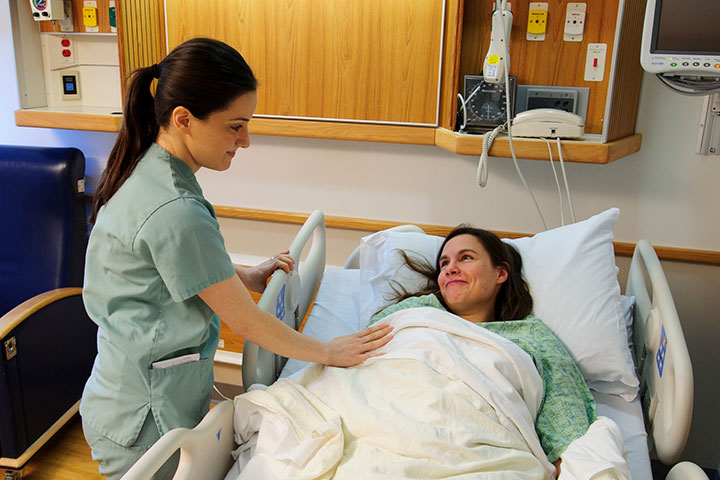In the aftermath of a surgical procedure, the journey toward full recovery begins 天天枣上好. This article serves as a comprehensive guide, offering invaluable insights and recommendations to empower individuals in managing their post-operative phase effectively.
From pain management strategies to mental health support, each section is thoughtfully curated to provide practical and essential information.
Embrace this resource as a beacon of knowledge, guiding you towards a smooth and successful recovery process.

Pain Management Strategies
Effective pain management following surgery is crucial for facilitating a smoother recovery process. Patients deserve to have access to various strategies that can help alleviate discomfort and promote healing.
Utilizing a combination of pharmacological interventions, such as pain medications prescribed by healthcare professionals, alongside non-pharmacological methods like physical therapy, relaxation techniques, and heat therapy, can offer a comprehensive approach to pain management.
It is essential for individuals to communicate openly with their medical team about their pain levels and treatment preferences to tailor a plan that suits their needs. By actively participating in their care and exploring different pain management options, patients can experience greater comfort and a faster return to their daily activities, ultimately empowering them to take charge of their recovery journey.
Wound Care Techniques
Proper wound care is essential for ensuring successful post-surgery recovery. Following your healthcare provider’s instructions is crucial. Keep the surgical site clean and dry, following any specific cleaning procedures provided.
Change bandages as directed, and inspect the wound regularly for signs of infection, such as increased redness, swelling, or discharge. It’s important to avoid soaking the wound in water until your healthcare provider gives the green light.
Protect the wound from further injury by avoiding strenuous activities that could strain or reopen the incision. If you have any concerns about the healing process or notice any unusual symptoms, contact your healthcare provider promptly.
Diligent wound care is vital for a smooth and uneventful recovery journey.
Physical Activity Guidelines
During the recovery period after surgery, it is important to adhere to physical activity guidelines recommended by your healthcare provider. Engaging in appropriate physical activity can promote healing, improve circulation, and prevent complications such as blood clots.
Your healthcare provider will outline specific recommendations based on the type of surgery you underwent, your overall health condition, and the extent of your recovery. It is essential to follow these guidelines diligently to ensure a smooth and successful recovery process.
While it is crucial to stay active, it is equally important to avoid overexertion or activities that could strain the surgical site. Listen to your body, gradually increase your activity level as advised, and always consult your healthcare provider if you have any concerns regarding your physical activity during recovery.

Nutrition Tips for Recovery
To support your recovery process post-surgery, it is essential to focus on optimal nutrition intake. Adequate nutrition plays a crucial role in healing and rebuilding your body. During recovery, prioritize a balanced diet rich in vitamins, minerals, protein, and fiber.
Protein is especially important for tissue repair, so include sources like lean meats, fish, eggs, dairy, legumes, and nuts. Ensure you stay hydrated by drinking plenty of water throughout the day. Incorporate a variety of fruits and vegetables to boost your immune system and aid in the healing process.
Avoid excessive processed foods, sugary snacks, and high-fat meals that can hinder your recovery. Consulting with a nutritionist can also provide personalized guidance for a smoother healing journey.
Mental Health Support
Adequate mental health support is essential for facilitating a comprehensive recovery process post-surgery. The emotional impact of surgery can be significant, ranging from anxiety and depression to feelings of isolation. Seeking support from mental health professionals, support groups, or trusted individuals can help individuals navigate these challenges.
It is crucial to prioritize self-care, incorporating relaxation techniques, mindfulness practices, and engaging in activities that bring joy. Expressing emotions and concerns openly and honestly is vital for mental well-being. Additionally, maintaining open communication with healthcare providers about any mental health struggles is key to receiving appropriate support.
Conclusion
In conclusion, managing recovery after surgery involves implementing pain management strategies, proper wound care techniques, following physical activity guidelines, maintaining proper nutrition, and seeking mental health support.
It is important to adhere to these guidelines to ensure a successful and smooth recovery process. By staying diligent and proactive in your recovery plan, you can promote healing and overall well-being in the post-operative period.